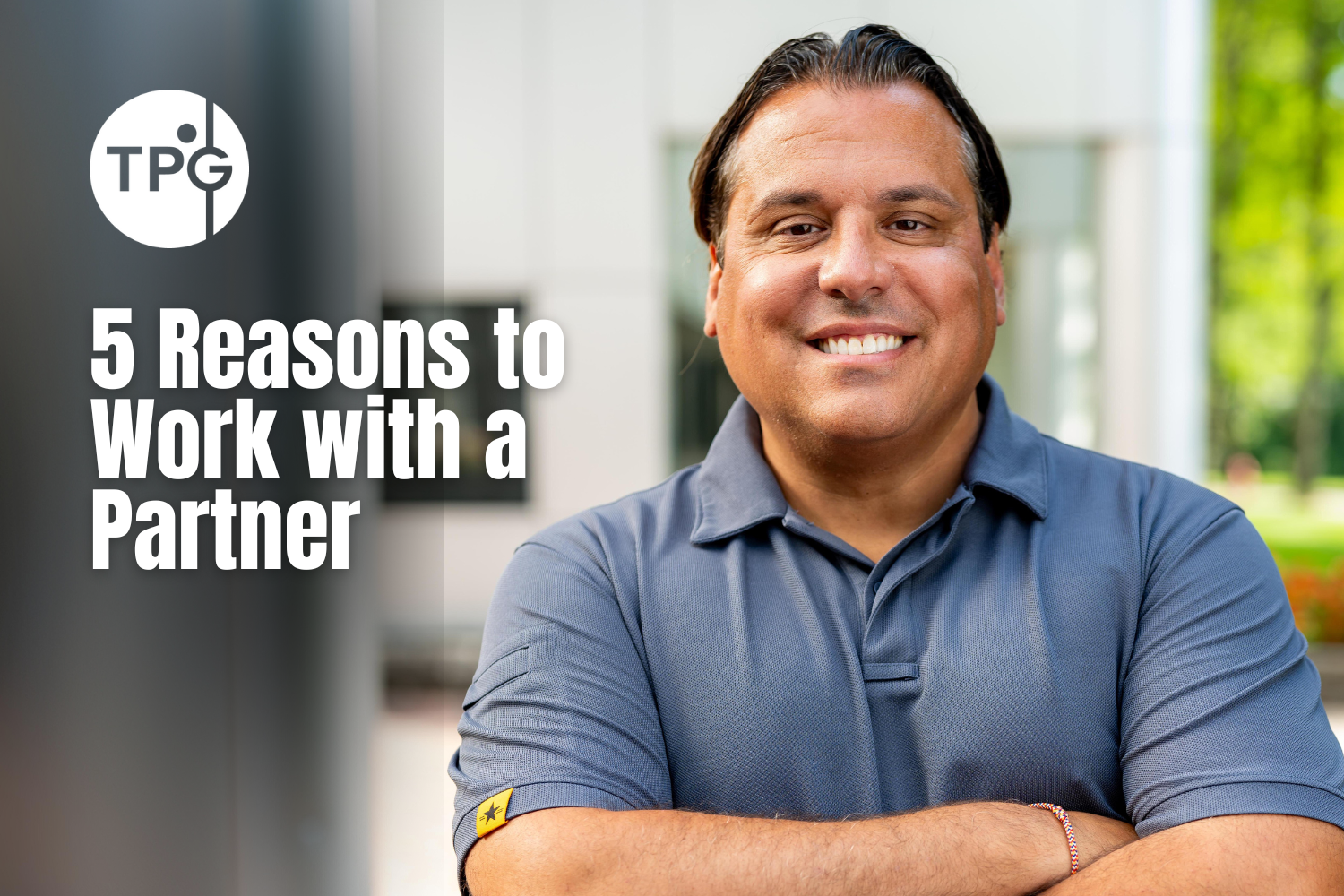Five Reasons to Work with a Partner
By Todd Leonardis
Thinking about starting a business with a partner? Let me tell you—it’s both exciting and terrifying. Sure, plenty of folks make it work solo, but there are some real perks to having a partner in crime. I’ve learned (sometimes the hard way) that bringing in a business partner isn’t just about splitting the load. It’s about finding the right fit, someone who complements your skills and makes the rollercoaster of entrepreneurship a little less bumpy.
Here are five reasons why teaming up might just be the best move—and a few tips to keep things running smoothly once you do.
1. Work with Someone You Actually Trust
Let’s be real: Trust is the glue that holds any partnership together. You’re diving into this thing with someone who’ll be right there in the trenches with you, so you better make sure it’s someone you can count on. Ideally, a partner is someone who’s got your back when things get rough—and someone who knows not to “borrow” your lunch from the office fridge.
But trust alone won’t keep the business afloat. Make sure this person brings something to the table besides friendship. If your buddy is great at planning happy hours but clueless about managing a budget, you might need to rethink the partnership. Look for complementary skills—and ask yourself if they can bring real value to the business.
2. Your Yin to Their Yang
In a great partnership, each person brings something to the table the other one lacks. If you’re the big-picture visionary, you want someone who loves crunching numbers. If you’re more of a “get-it-done-now” person, maybe your partner is the one who thinks five steps ahead. It’s all about balance.
Make sure you both understand what you're bringing to the table upfront. Are they bringing operational chops while you bring the charm? Great. Just make sure you’re both getting something out of the deal, and talk through expectations early—like before you’re stuck sharing the workload at 2 AM, wondering where things went wrong.
3. Sharing the Load (Because Burnout Is Real)
Let’s face it—running a business is hard. It’s late nights, early mornings, and an endless to-do list. Having a partner means you don’t have to do everything yourself. They can handle operations while you focus on building the next big thing—or at least keep you sane when things inevitably hit the fan.
I admit that my natural tendency is overworking. I tend to take on too much, work too late, and end up feeling a little like a martyr. It took me a while to really learn that sharing the load means you both need to pull your weight. While that obviously means you can't slack off, it also means you need to share the work - don't make my mistake and think you must do it all.
Talk about what each of you expects—how you’ll split responsibilities, who covers for who, and what happens when one of you needs a break (because you will need a break).
4. No One is Good at Everything
Let me say it louder for the people in the back: No one has all the skills to run a business alone. This is where a partner shines. Maybe you’re great at product development but not so hot at sales. Maybe you’ve got the vision, but spreadsheets make your eyes glaze over. A partner with different strengths can fill in those gaps.
The best partnerships leverage individual expertise—whether it’s sales, operations, or that one magical ability to charm difficult clients. Bonus points if your partner has industry connections or a reputation that gives your business instant credibility. Just be clear about what each person’s role will be. Otherwise, you’ll end up stepping on each other’s toes, which is...painful.
5. Dividing Responsibilities
Look, entrepreneurship can easily become a 24/7 gig if you’re not careful. One of the biggest advantages of having a partner is dividing and conquering. Maybe you handle the strategy and growth plans, and they take care of the day-to-day operations.
But here’s the catch: Dividing responsibilities only works if you both respect the boundaries you set. If you both try to micromanage everything, or take over everything, you’re heading straight for burnout—and probably a few arguments along the way. Partners don’t have to do everything together. In fact, it’s better if they don’t. Know your role, trust the other person to do theirs, and everyone wins.
“Winging It” Never Works
Listen, even with all these perks, partnerships aren’t for everyone. It takes planning, communication, and a little humility to admit where you need help. Define roles, set expectations, and—this part’s crucial—get those agreements in writing. Yeah, it sounds boring, but nothing will kill a partnership faster than unclear expectations or unspoken frustrations.
At The Partnership Guys, Steven and I always tell people: If you’re thinking about partnering up, treat it like a marriage. There will be good days, bad days, and moments when you question all your life choices. But if you’ve got the right person by your side—and a solid plan—it can also be one of the most rewarding things you’ll ever do.
If you’re thinking about teaming up with someone (or if you’ve already jumped in and need a little help navigating the choppy waters), give us a call. We’ve been there, done that, and yes, we’ve made a few mistakes along the way. But hey, that’s what makes us good at what we do—helping you avoid the same ones.

